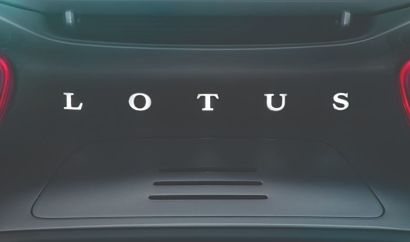
The charter highlights how Lotus will become the first established sports car maker in the world to have a fully electric product range.
“Our new ESG Charter formalises many activities that we have been carrying out for a number of years” said Matt Windle, Managing Director, Lotus Cars. “Lotus as a business has always been agile, efficient and impactful within the automotive industry. Now, more than ever, as we transform rapidly to become a global pioneer of electric performance vehicles, we recognise our responsibility to do so in ways that lead our industry in minimising its impact on the environment, benefitting society and the planet as a whole.”
The first of the four core ESG commitments is through the Lotus product line-up; all future new mainstream vehicles from Lotus will be fully electric. It’s a move inspired by the Lotus Evija – the world’s most powerful production car – launched in 2019 as the first British electric hypercar. Customer deliveries begin later this year.
The Evija was followed by the Emira sports car launched in 2021. It is not an EV but was designed using the same aerodynamic and efficiency principles, and is the last internal combustion engine-powered production car from Lotus. The Emira has also been designed and engineered to be more than 95 percent recoverable and more than 85 percent recyclable.
The latest of Lotus’ new generation of cars is the Eletre, launched earlier this year. It marks the company’s transition to a full line-up of electric vehicles and seals the brand’s place in history as the world’s first established sports car maker to go fully electric. The Eletre is a bold new hyper-SUV and sees the iconic Lotus sports car DNA evolved for a new generation of customers.
These new Lotus models will be joined by three more EVs in the next four years – a four-door sports sedan (the Type 133, which launches in 2023), a second SUV (Type 134, in 2025) and a lightweight next-generation sports car (Type 135, in 2026).
Lotus is also supporting other businesses in their desire to move to an all-electric future. The company’s Lightweight Electric Vehicle Architecture (LEVA) is the innovative new technology underpinning the Type 135 for Lotus, and is also commercially available through Lotus Engineering, the consultancy division of the business.
Lotus will also become a net zero company through a commitment to become a Science-Based Target initiative (SBTi) organisation, using an SBTi provides guidance and methods to companies to set science-based targets in line with the latest climate science.
The ultimate goal for Lotus is for certification as a net-zero company. This will be achieved through sustainability in the design of its products and the way they are manufactured, and is well underway currently. The Driving Change commitment includes significant reduction in carbon emissions throughout the business; substantial elimination of waste; driving efficient and sustainable use of resources in both operations and supply chains; and protecting and preserving natural environments.
Much of this work is already in progress. For example, Lotus is a proud signatory of the COP26 zero emissions vehicle declaration, uses a REGO (Renewable Energy Guarantees of Origin) energy tariff to power all UK sites, has installed energy sensors to monitor and analyse energy consumption and a solar array is in development to provide up to 30 percent of the total requirement. In addition, all human waste from the site is recycled and used to support local agriculture.
For additional information:

